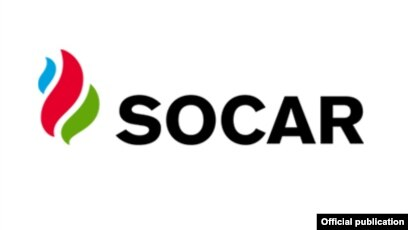Economic Pressures Mount in Azerbaijan as Beef Prices Soar and Problem Loans Increase
- Obyektiv Media
- Sep 4, 2025
- 3 min read

Baku, Azerbaijan – Citizens across Azerbaijan are facing growing economic challenges as the price of veal continues its sharp rise, compounding concerns over increasing non-performing loans and a shrinking workforce. The cost of a kilogram of veal has now reached 17 manats in both Baku and regional markets, marking a significant jump from 14 to 16 manats just last month.
Wholesale suppliers have increased their prices, but official bodies have yet to comment on the latest surge, having previously stated that market forces determine prices. Independent economists predict that red meat prices will continue to climb, attributing the trend to long-term damage to livestock farming from policies favouring cotton production, as well as a shortage of grazing land and high feed costs.
This price hike coincides with a notable decline in meat imports. According to the State Customs Committee, meat imports in the first seven months of the year fell by 18% in volume and 19.6% in value compared to the same period last year. Despite the decrease in imports, the average import price for a kilogram of meat was a surprisingly low 3 manats and 72 qəpik, raising concerns among some experts about the quality of the product entering the country.
The economic strain is also visible in the banking sector. As of 1 August 2025, the amount of non-performing loans reached 529.4 million manats, an increase of 16.7% over the past year. Economists suggest this rise is a direct result of increased living costs and the worsening financial situation of the population. The labour market has also shown signs of weakness, with the number of paid employees decreasing by 10,000 in the first half of 2025. Furthermore, data from the State Statistics Committee reveals that while the number of families receiving targeted social assistance (ÜSY) has grown over the past year, the average monthly amount per person has decreased from 109.6 manats to 100.37 manats.
Political and Diplomatic Tensions
In foreign affairs, relations between Azerbaijan and Russia remain strained. Russia's Foreign Ministry spokesperson, Mariya Zakharova, has called for the release of Russian citizens detained in Baku, stating it would be a "significant step towards the normalisation of Russia-Azerbaijan relations". Tensions escalated following an operation against ethnic Azerbaijanis in Yekaterinburg, which was followed by arrests of Azerbaijani diaspora representatives in various Russian cities. In response, Azerbaijan has detained Russian citizens on narcotics and other charges. Despite Russian President Vladimir Putin acknowledging "problems" in the relationship, he expressed hope that mutual interests would prevail.
Meanwhile, a significant diplomatic shift occurred during the Shanghai Cooperation Organisation (SCO) summit in China, where Armenia and Pakistan formally established diplomatic relations. This development is notable given Pakistan's status as a close ally and arms supplier to Azerbaijan. During the same summit, President Ilham Aliyev of Azerbaijan met with Armenian Prime Minister Nikol Pashinyan to discuss the peace agenda, building on the positive momentum from the recent Washington Summit. President Aliyev also met with Pakistan's Prime Minister, Shehbaz Sharif, who expressed gratitude for Azerbaijan's support during the India-Pakistan conflict. Aliyev noted that India has since attempted to retaliate against Azerbaijan in international forums.
Human Rights and Civil Society Under Scrutiny
Domestically, the situation for activists and opposition figures remains challenging. The criminal case against Hacı Vəliyev, chairman of the now-disbanded "Young Veterans" Public Union, is reportedly being sent to court. Vəliyev, who was arrested in April, is known for his social media criticism and for publicising the struggles of veterans and the families of fallen soldiers from the Second Karabakh War. Following his arrest, the union announced it was ceasing its activities.
In a separate case, an appeals court upheld a decision to transfer Elvin Mustafayev, a member of the "Worker's Desk" Trade Union Confederation, to a strict-regime prison for six months. Mustafayev, who is serving a three-year sentence on drug charges he denies, claims he is being punished for his activism and has been subjected to torture. Several other members of the confederation are also imprisoned on various charges, which they maintain are fabricated.
Additionally, the chairman of the opposition Azerbaijan Popular Front Party (AXCP), Əli Kərimli, announced his intention to apply to the Prosecutor General's Office for a passport to attend the Warsaw Security Forum. Kərimli has been unable to leave the country since 2006, as authorities have refused to issue him a new passport, citing a criminal case opened against him in 1994. This is despite a 2015 ruling by the European Court of Human Rights which found that the travel ban violated his freedom of movement.



Comments